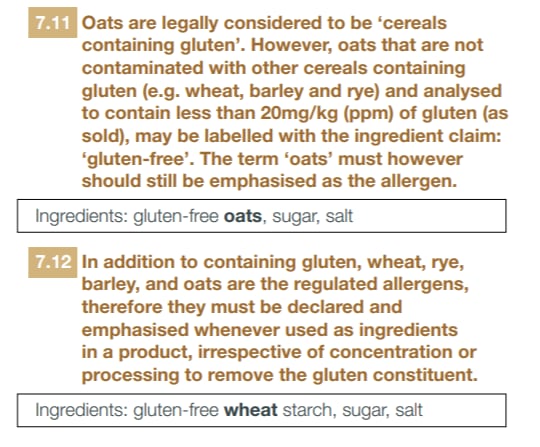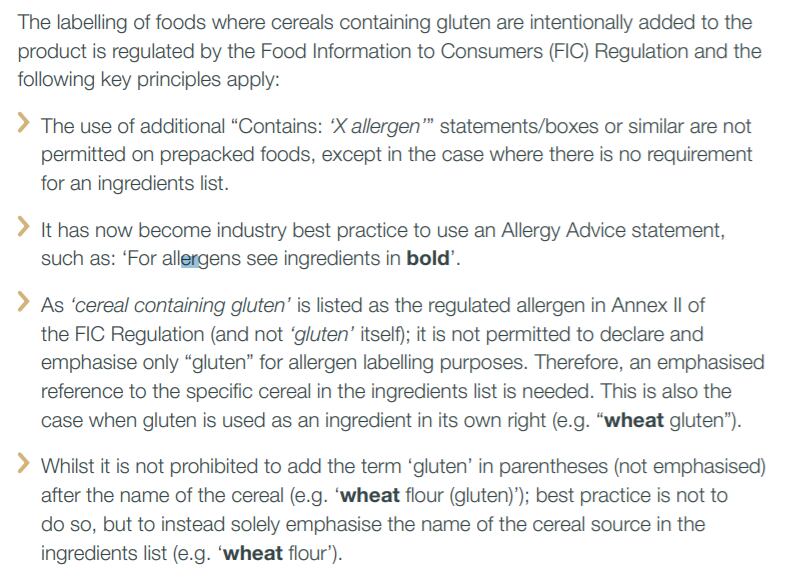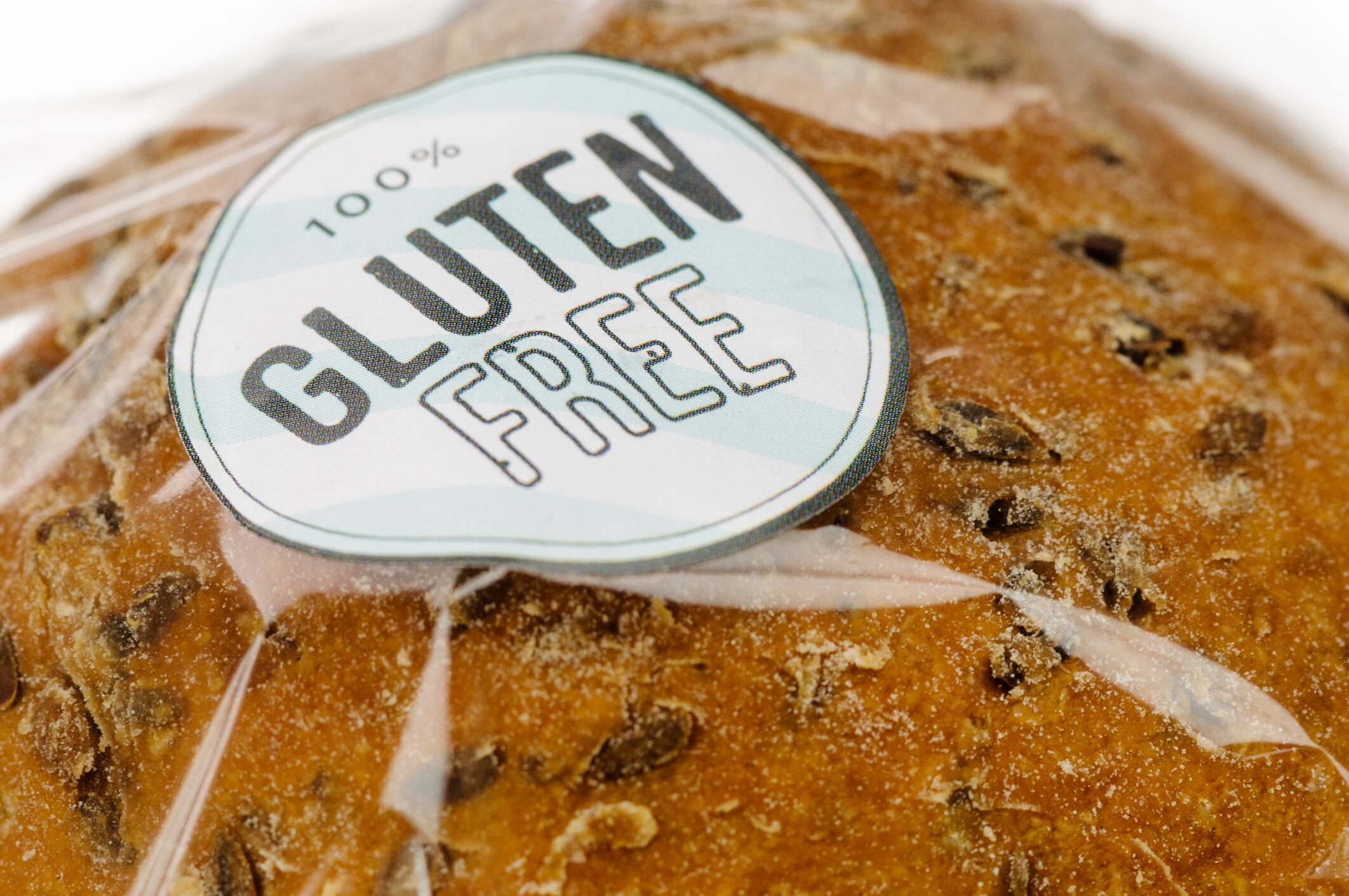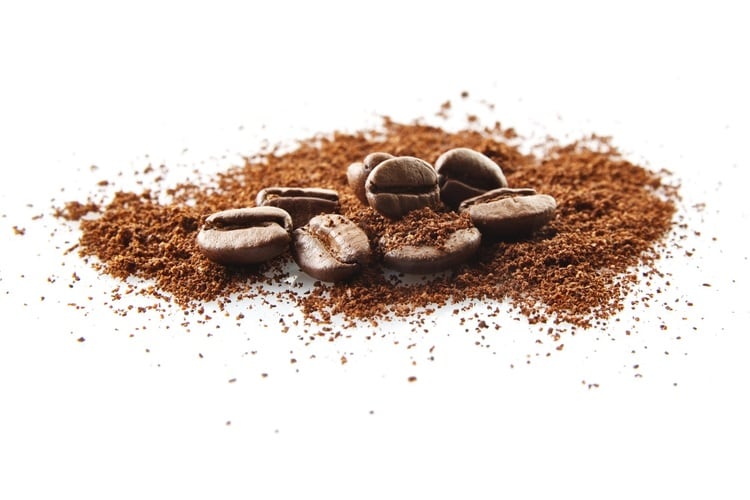The best practice guidance provides advice to food business operators on how to label food products that include cereals containing gluten, and which gluten-free claims can be made.
It gives information advice on precautionary allergen labelling, and a flow diagram for making gluten absence claims. It also includes an overview of the relevant EU and UK legislation and guidance.
Gluten-free doesn’t mean allergy free
The update gives particular attention to oats and wheat, which have been areas of confusion.
According to Coeliac UK, for example, a very small number of people with coeliac disease are still sensitive to gluten-free oats, which can become contaminated if produced in the same place as wheat, barley and rye. As such, food brands can easily and incorrectly claim to be allergy free when using gluten-free oats.

The FDF’s updated guidance suggests that oats that are not contaminated with other cereals containing gluten (e.g. wheat, barley and rye) and analysed to contain less than 20mg/kg (ppm) of gluten (as sold), may be labelled with the ingredient claim: ‘gluten-free’. The term ‘oats’ must however should still be emphasised as the allergen.
The same applies to wheat starch, which can also be gluten-free (and suitable for coelicas) but not allergy free (so not suitable to people with wheat allergies).
‘Free-from gluten’ claim is not permitted
The guidance also sets out explicitly that the ‘free-from gluten’ claim is not permitted. “The regulated claim “gluten-free” refers to a quantitative limit (20mg/kg (ppm)) rather than an absolute absence of gluten. This limit was set on the basis of scientific evidence to assure that the food in question can be consumed safely by the vast majority of people with coeliac disease or a gluten sensitivity,” it stated.
Spelt and Khorasan are wheat, buckwheat is not
The update clarifies that spelt and Khorasan are both types of wheat. As such, “they are not suitable substitutes for people with coeliac disease and/or wheat allergy” and these ingredients should appear in bold font on labelling.
Despite the name, buckwheat is not related to wheat and is “therefore is not an EU regulated allergen for labelling purposes”.
A gluten intolerance is not an allergy

The update adds that -- because a gluten intolerance is not an allergy – the cereal containing the gluten is what should be declared and emphasised in bold font.
It states: “As ‘cereal containing gluten’ is listed as the regulated allergen in Annex II of the FIC Regulation (and not ‘gluten’ itself); it is not permitted to declare and emphasise only “gluten” for allergen labelling purposes. Therefore, an emphasised reference to the specific cereal in the ingredients list is needed. This is also the case when gluten is used as an ingredient in its own right (e.g. “wheat gluten”).”
The Gluten Free Industry Association (GFIA) joined Coeliac UK, Anaphylaxis Campaign and the British Retail Consortium (BRC) as supporting partners of the updated guidance.
Heather Hancock, Chairman of the Food Standards Agency, said the changes would make it easier for people with coeliac disease or with allergies to these cereals to find and understand the labelling information they need.
Norma McGough, Director of Policy, Research and Campaigns at Coeliac UK, said the updated guidance helps highlight the important distinction between an allergy to cereals and coeliac disease. “We also welcome approaches to limit use of precautionary statements relating to the presence of cereals containing gluten in prepacked products.”





